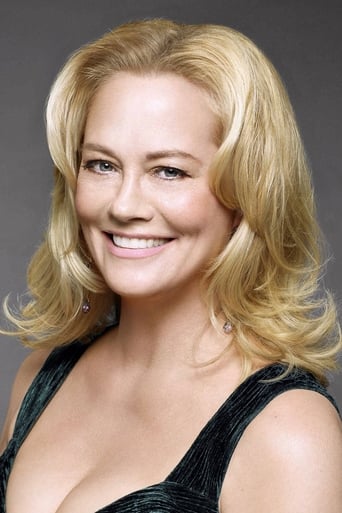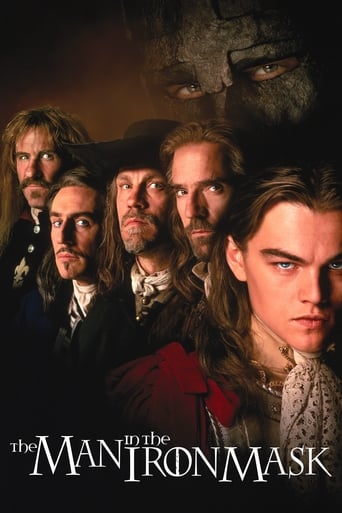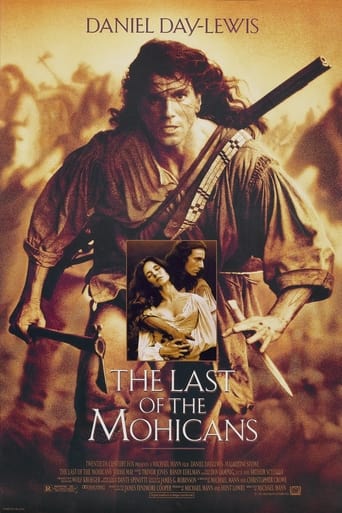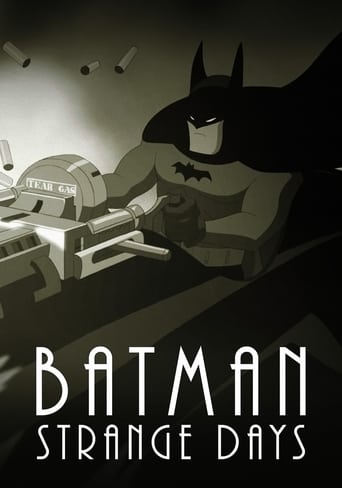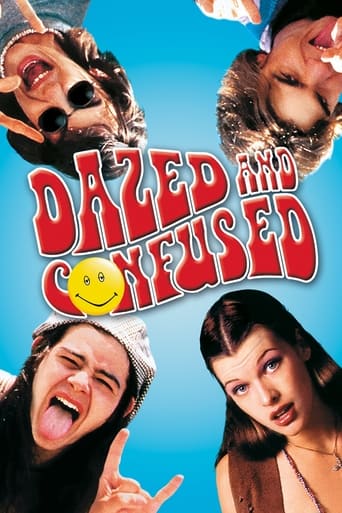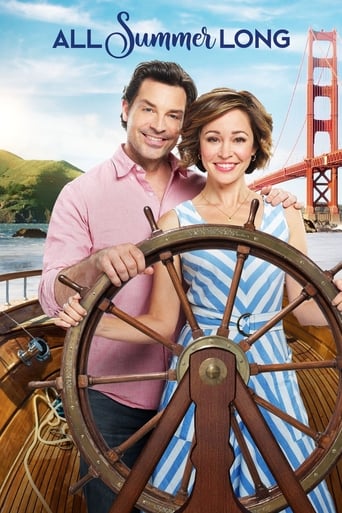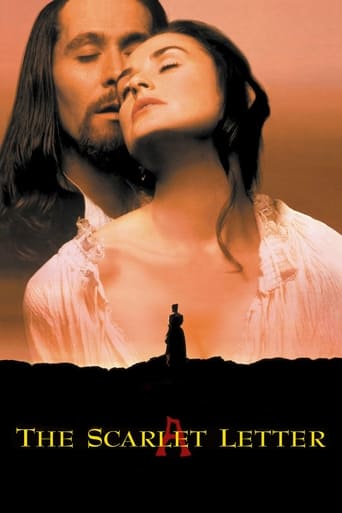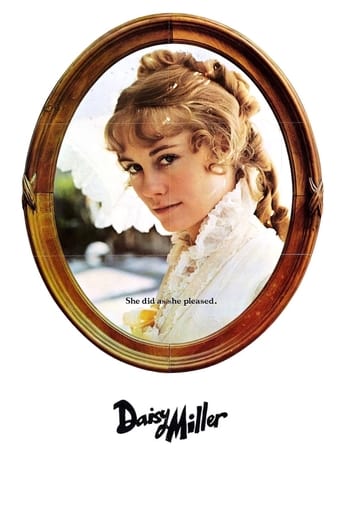
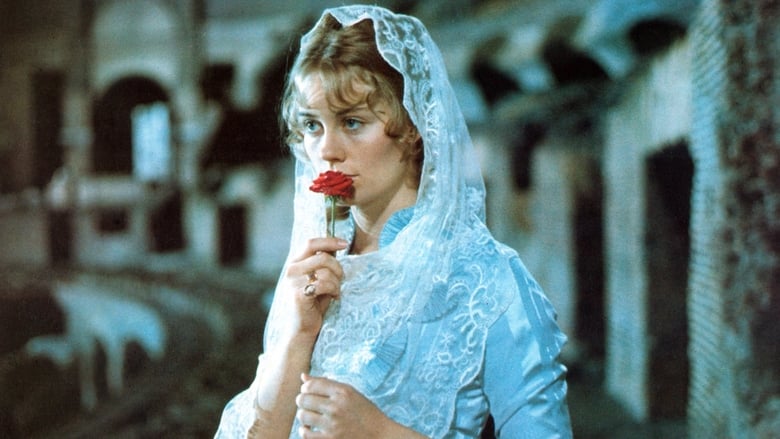
Daisy Miller (1974)
Despite mixed emotions, Frederick Winterbourne tries to figure out the bright and bubbly Daisy Miller, only to be helped and hindered by false judgments from their fellow friends.
Watch Trailer
Cast
Similar titles

Reviews
Very very predictable, including the post credit scene !!!
I don't have all the words right now but this film is a work of art.
Great example of an old-fashioned, pure-at-heart escapist event movie that doesn't pretend to be anything that it's not and has boat loads of fun being its own ludicrous self.
The acting in this movie is really good.
Daisy Miller is an adaptation of the novella of the same name written by Henry James. Daisy Miller was directed by Peter Bogdanovich, the same person who directed Paper Moon and The Last Picture Show. Both the film and the novella tell the story of Frederick Winterbourne, a young American man studying in Geneva, where he by chance encounters Daisy Miller, a young American woman traveling Europe with her family. Winterbourne and Daisy develop a deep connection with their short time together in Geneva, but eventually Daisy has to leave Geneva and head to Rome. Daisy wants Winterbourne to come with her, but Winterbourne says he most stay in Geneva for now, but will be in Rome eventually. Daisy is angry with Winterbourne for this decision and after a brief fight Daisy leaves. Eventually Winterbourne does go to Rome where he finds out that Daisy has been running around and flirting with several different men, and has been rejected by the high-class society there.Adapting Daisy Miller into a film was a strange choice for Frederic Raphael (the screenwriter) to make. Because, well let's face it, it isn't a good story like at all. If you've read the novella you know what I'm talking about, and the reason that it sucks so much is because Daisy is such an unlikable character. She is annoying, arrogant, rude, and manipulative, but even with her many, many flaws Henry James was still trying to hold her up as a symbol for innocence and how American ideals are different from the rigid European customs. Which doesn't really work if the character you using to try and convey this point is a cruel deceitful arrogant bitch, like Daisy Miller. The whole book falls apart, in fact the reaction to Daisy Miller at the time was bad at the time it was first published that Henry James had to come out and say what the novella was supposed to be about, because everyone was getting it wrong. I know I'm dwelling on this but it deserves to be dwelled on. Daisy Miller is probably one of my most hated characters of all time. But to be fair the filmmakers do to try to make Daisy a more likable character, however she still isn't even close to likable, but they do add some scenes that try to show that she isn't as bad as we think she is, and they also desperately shove the fact that she's "innocent " down your throat. The filmmakers also try to make the message of the book much more obvious. Which is good, but they do go a little to far, at some parts and even flat out saying what the message is several times during the film. Another positive I can say about the film is that all members of the cast and crew do really good jobs, all of the performances are at least good and some are actually pretty great. The set's, cinematography, and costumes are also all pretty good. Throughout the whole film I actually felt like I was in Geneva/Rome, not to mention that there is some fantastic lighting in this film. Even with all of its good parts Daisy Miller is still a weak film, but I would say that it's far superior to Henry James novella. The filmmakers do a good job of trying to lessen the weaker aspects of the source material, and add some pretty good scenes. In fact I would like to see the same cast and crew adapt a different story, because if they do this well with a bad book, I'm curious to see what they'd do with a good one. But I don't think I can recommend Daisy Miller, it isn't terrible, but it isn't good either.4.7
Aloof, mechanical adaptation of an 1878 novella by Henry James, a short story which curiously attracted the attention of hot-property Peter Bogdanovich, a film director then riding high with a string of successful films to his credit. While showcasing Cybill Shepherd in the title role, Bogdanovich does give hint early on why this tale tempted him so: the breathlessly bemused bantering of the characters could be straight out of a Howard Hawks comedy from the 1930s (complete with exhausted patches), while the staging reminds one of a Noël Coward play. Shepherd's Daisy, American girl from Schenectady on vacation in Europe with her mother and little brother, captivates a handsome, worldly admirer (Barry Brown, who resembles Bogdanovich); his pursuit of Daisy becomes a game of catching-up, which brings words of disapproval from the surrounding members of high society, who attempt to warn the young man that Daisy's flirtatiousness spells trouble. As written, Daisy is supposed to be a blooming flower of a girl, but Shepherd seems too coached, too self-consciously frivolous to be convincing here. It would take a leap of faith for any audience to believe a sophisticated, if ultimately ambivalent, man of the world would take a passing interest in this innocuous creature. However, Shepherd does improve by the film's second-half, especially as the mood of the picture turns a bit more somber and Shepherd becomes a tad more thoughtful in her characterization. Several of the supporting performances are certainly superior (especially Eileen Brennan as the contemptuous Mrs. Walker and Duilio Del Prete as the dutiful Gionavelli). The finest work in the film comes from Brown as Frederick Winterbourne; clearly this is the character whom Bogdanovich identifies with, and Brown's grasp of this perplexed-yet-intrigued traveler makes an immediate connection with the audience (his performance is a life-raft we can hold onto). Despite flaws in the screenplay and the handling (and portions of the casting, including an annoying youngster I could have done without), the movie carefully makes its way to a touching conclusion. It isn't an involving picture, and it doesn't have a fluidity to it--nor a grand sweep--which might have made it an art-house success. Bogdanovich is occasionally static with his direction, as if his actors were on the stage, rapidly bantering in goosey spirits. Still, the filmmaker gets moments on film that dig a little deeper into loss and loneliness than I think he was given credit for at the time. The film's general design and style are rather disappointing, as is Alberto Spagnoli's cinematography, but "Daisy Miller" is not a failure. There is a heart underneath these smoke and mirrors. ** from ****
Granted, the lead character is supposed to be a shallow, useless wench, but something might have been done with the other characters, or with some depth to Daisy, that might have rescued this from the morass it became. Sadly, it was not to be, and I suffered through far too much of this filmish turd than I should have endured.Don't waste the rental on this one. Better to be stuck watching reruns of The Love Boat or Green Acres, which are far superior in character development.How Bogdanovich got involved in this disaster I cannot imagine, and it looks like he just sat in the nearest bar getting drunk and let the Assistant Directors torture one another with churning out this load of swill.
This is a good movie, The acting and photography are both excellent. My understanding is that the aim of this story is to indicate the clash of cultures between the naive American and the pensive and suspicious European at the time around the First World War. This was later illustrated by the tragic failure of President Woodrow Wilson in his futile attempts to make the League of Nations work and to make the world safe for democracy. However, unless the viewer understands this background, he/she will never appreciate it just from watching this film. Perhaps this film should not be made at all
